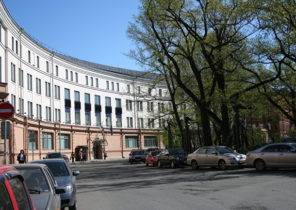Is France on the verge of political revolution? Already four approved presidential candidates — two former presidents and two former Prime Minister is left alone or found no support among voters, the other, françois Fillon, pressed to the wall. The campaign is led by outsiders, especially from the national Front of marine Le Pen (Marine Le Pen) and a former banker, young Emmanuel macron (Emmanuel Macron), while Socialists chose eccentric radical Benoit Amon (Benoît Hamon). Should we enjoy such a shake-up in the cradle of European revolutions? What will this shake — socialist (least likely), the liberal in case of victory of Macron or nationalist, if you come to power, Le Pen? Or, perhaps, an electoral system designed not to allow outsiders to power, is still able to be overcome?
Throughout modern history, France has seen five monarchies, five republics and 16 of the Constitution — two of counting on the presidential place this year require the seventeenth. The French people, as before, ready to take to the streets more than others. France was and remains a country in which rhetoric and vision play a significant role in politics. In “Les Miserables” by Victor Hugo, a romantic revolutionary Enjolras inspired broadcasts from the top of his barricades of the glorious time when we shall see “thinkers on freedom, full freedom of belief, brotherhood in schools and workshops, the work, accessible to all”. However Enjolras killed, and his dreams remain relevant two centuries later.
The fact is that France throws between the short spasms of change and long periods of paralysis. She has developed legal restrictions and tacit agreements to maintain the existing balance. Present in France’s Fifth Republic is nothing but a “Republican monarchy” in which the role of Parliament is understated, and powerful institution of the presidency needs to ensure the unity of the nation — unfortunately, most politicians, this task is not on the shoulder. Another, less noticeable Institute dates back to the time before the book of death Enjolras on the barricades: dokhturova vote entered in 1820х, to prevent hotheads like him to win elections. It gives voters and politicians a second chance, not so much in order to change their own choices how to respond to someone else’s. In the first round the voter votes for the person for whom he wants, and the second against somebody you fear.
In the course of history, this approach evolved into what is now called the “Republican discipline”: in the first round can be many rival candidates of the variety of colors, but in the second round all of the loyal Republicans from the moderate liberals to radical Communists will vote for the candidate best fitted to repel the enemy of the Republic — most often these are becoming a monarchist or authoritarian nationalist. The emergence in the 1970s the National Front of Jean-Marie Le pen (Jean Marie Le Pen), the party that United conservative traditionalists, nationalists, embittered and nostalgic fascists met the same answer. When Le Pen shocked France, after the second round of the presidential elections of 2002, crushed by Jacques Chirac received 82% of votes. Loyal Republicans rallied together, including the extreme left: “Better a crook than a fascist”, said one of the slogans of the past. A key question this election is whether to keep this Republican instinct; if not, marine Le Pen can win.
Think about long-term consequences dokhturova electoral system. Many English people commenting on French political process — like some French from time to time call for the election of the “French Thatcher”, in order to sweep away the systemic constraints that bound the economy. Nicolas Sarkozy short, was among those who took the mantle; the last of them was Emmanuel macron, a former economy Minister, who belonged to ameritska wing socialist government of Francois Hollande. But Margaret Thatcher never managed to win in the second round of the French elections. The British system not just to give, but also regularly gives a cohesive minority has power over a divided majority. Mrs Thatcher managed to produce a bloodless revolution, without a solid support of the majority of voters. In the French system, she and her supporters in Parliament inevitably would have lost the second round of Union Labour and Liberals: James Callaghan (Jim Callaghan) would be triumphantly re-elected.
In short, it was his turbulent history, France has a number of restrictions directed against radical change. In 1970, the influential sociologist Michel crozier (Michel Crozier) called this situation a “société bloquée” — “padavim society.” Of course, in France, things are changing: but the price of political stability — the inviolability of certain fundamental rights and privileges. A decent severance package and pension. Some influential profession. Protection of farmers the common agricultural policy. Permanent working employment, protected by law against excessive working hours. Public sector — “le service public”, speaking in French- lies at the heart of this system are: schools, public transport, railway, universities, regional authorities, the post office. They are all branches of the state. When I think of le service public, imagine the National health service in the UK, only multiplied by five. Policies of his workers, combining a sincere sense of duty to society, with zealous fight for their rights and privileges, explains why France remains the most anti-capitalist country in Europe.
It has its advantages. Many Brits still have good memories about hospitals, schools or trains. However, the observer does not need to adhere to some particularly right-wing to notice the accumulated disadvantages. Among them, the highest taxes in the developed part of the world, especially taxes on business. Ongoing unemployment, the most malignant among young people and ethnic minorities. Slow development, which is affected by fear and small companies before the load limitations of the growth more than a certain threshold. Crumbling infrastructure. Anyone who gets at the Gare du Nord, will inevitably notice that something went wrong. Notice the French, and for many years. In the 1980s, President Mitterand (Mitterand) lamented the “gloom” that has settled among the nation. Bookshelves have long been a complete work of economists, politicians and academics, warning that France is in the increasing speed of the decline. Young people are leaving the country — only in London emigrated more than 200 thousand people.
In addition to this chronic illness appeared and the tension between Republican secular principles and Islam caused by the debates of 30 years ago that erupted over the question of the right of girls to wear headscarves in provincial high school. That’s a potent mix of cultural differences, a lack of public relations and historical mutual distrust, imposing presence, which, compounded by a number of terrorist attacks, it is impossible not to notice. Even if I forgot about it, a sharp reminder I would send a scouting patrol out of the 25 people in combat gear, which I came across in the middle of the quiet streets in Paris a few weeks ago.
None of this is unique to France alone. Typical for France, however, the apparent inability of the political system something to do with it, even after many years. In this regard, we return to the problem of a “stalemate society.” Even limited reforms — a tiny intervention, by British standards — in education or the labour market provoked a massive and prolonged student demonstrations and sit-in protests as well as unwanted strike of trade unions from the public sector. They often lead to the adoption of complicated half-measures that do not solve the as follows problems and create long-lasting controversy.
“French Thatcher” — even assuming it exists in something close to the original form — will meet not only obstacles among the electorate, but also with a broader ideological divide than in Britain in the 1980s. At that time, a large minority, sometimes turning into a majority, felt the need for radical change and was prepared to accept the consequences such as the weakening of trade unions and a market release. Says little about the existence of such a consensus in France, where right and left with a deep suspicious of economic liberalism. Marine Le Pen trashes free trade and “unfair” competition. The word “liberal” has become a kiss of death: the future will show whether the macron exception. Thus, the society has spread discontent, but not consensus, about the way of solving problems.
Party structure, the former is always in France a weak, failed to produce by the majority of the strategies or to breed a new generation of politicians. The problems with party financing have led to endless money scandals in which Sarkozy is once again confused. The situation of many politicians is rooted in the regional authorities, on the one hand it is an advantage. On the other, it leads to what the French call the estates — feudal domains — which can provide impenetrable political Foundation and questionable cash sources for the major players. The case of Alain Juppe (Alain Juppé), mayor of Bordeaux is not something unusual — despite his advanced age and the fact that Juppe was convicted of corruption, until recently it was considered the main candidate for the presidency. He made the memorable remark that in France the political career ends only with death-maybe he will get lucky again to prove it.
Parties struggling to clean up from their ranks dry wood and recruit fresh blood. What a charismatic macron, whose age is 39 years, a stunning small French policy was never elected to any office and is forced to move forward independently, creating his own party, speaks for itself. However, the recent introduction of primaries in political parties, the first of which was held by the socialists, has enabled voters to get rid of a succession of “big players” among the candidates, including Juppe, Sarkozy and former Prime Minister of the socialist Manuel Valls (Manuel Valls), whose defeat marked the beginning of karbonizatsii (from the name of the British of the labour party Jeremy Corbyn, approx. transl.) the socialists under a hopeless candidate, Benoit Hamon (Benoît Hamon).
Given the above, is whether France is in crisis? It remains one of the richest, most powerful and most active States, which should save us from unnecessary pessimism. Historian Emil Sabel (Emile Chabal) noted that the French often speak of the crisis as “the main catalyst” of change. However, this time the crisis represents something more than simple rhetoric: many voters disillusioned with the traditional parties and expecting things to happen by outsiders. The main manifestation of this frustration was marine Le Pen. Her national Front continues to grow in the rust belt (industrial regions) and regions with a significant number of immigrants, largely by attracting disgruntled voters from the working class. At the moment, the national Front represents, apparently, the third largest party of France, which supports nearly a third of voters.
Since then, Le Pen succeeded her father at the head of the party in 2011, she worked with voters, convincing them that the national Front, and let the remaining radical, more threatening to the Republican principles, on the contrary, as the surest defenders of the secular Republican values in the face of creeping threat of Islam. The new message of the party is that a vote for her is not a betrayal of national heritage, so important for the identity of the French.
To his nationalist programme, she added a fierce opposition to the EU as imposed from the outside capitalist conspiracy. Almost the entire French establishment without any doubt accepted as Givens the future of France in the European Union. The condemnation of the European Union National Front has turned it into a stigma, a habit that distinguishes the bearers of progressive values. The country is split more than Britain, more people strongly support the EU, but more people strongly reject it. Thus, although Brickset provoked some rough spots in relationships between citizens and a couple of polite demonstrations in public, any attempt to leave the European Union France will cause in the country of slaughter.
Le Pen will surely make their way to the second round of the elections, and it is possible that it will overtake their opponents in the first round on April 23. Fillon was to rally moderate conservatives and moderate socialists to defeat her in the second round. But ugly money scandal (which some suspect was caused by a vengeful Sarkozy merged information) harmed Fillon, and will probably cost him the race. He began for his own protection, withdrawing his shy wife Penelope, a Welshman by birth, which is accused of receiving a salary for a fake work at public campaign, where she was holding his hand, tears while Fillon’s supporters shouted “Je suis Penelope!” Surveys indicate that two-thirds of conservative voters still support him. However, it remains unknown how many voters from the remaining third will join Le Pen.
Brickset and trump has created a sense that the unthinkable is now possible — this could further weaken the unspoken taboo that did not allow many voters to vote for Le Pen. However, it mobilizes and its rivals. I find it hard to believe that a sufficient number of moderate voters will abstain from voting in the second round and allow the victory of “fascist”. “Republican discipline” still needs to attract the support of Tom, whose chances of beating Le Pen of the most high, and such a candidate at the moment looks Makron.
However, few clearly deny the possibility of the victory of Le Pen, and if the campaign Rules will face serious problems, the outcome will be absolutely unpredictable. Every ongoing scandal or terrorist attack plays Le Pen in hand. If she becomes President, France will face a real crisis, the worst in half a century. Definitely will be strikes and aggressive demonstration on the part of those who would consider himself a defender of the Republic against fascism. How will she be able to form a workable government or win a majority in Parliament, is unclear. We will witness the collision between a powerful presidential institution of the Fifth Republic and the Parliament in the legislative system, which one liberal critic called dangerous even in the hands of the Saint. The consequences for the Euro, EU, European security and the UK’s relationship with one of his closest allies will be extremely difficult.
It is most likely that in the second round of the victory of the outsider of a different kind, Emmanuel macron. This gives him the credibility and the goodwill of the majority of society — at least at first. However, neither his problems nor the problems of France are dealt with. He intends to carry out liberal economic reforms, which with high probability will meet with an extensive and violent opposition. It acts by itself, and policy establishment, both left and right sides are interested in his failure. If he wins, just because experiencing a dislike for him people see it as a barrier against Le Pen. Most likely, Le Pen will get more votes than ever before, and will continue relentlessly to prepare for the next elections. Recently, one of my French friend told me: “I did not vote for. I only vote against.” This is the unfortunate mantra of the modern French policy.







